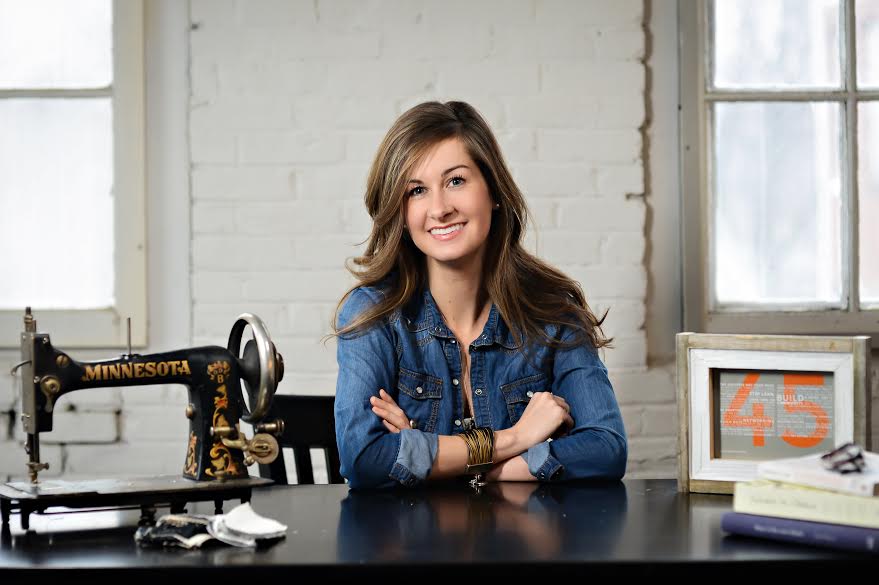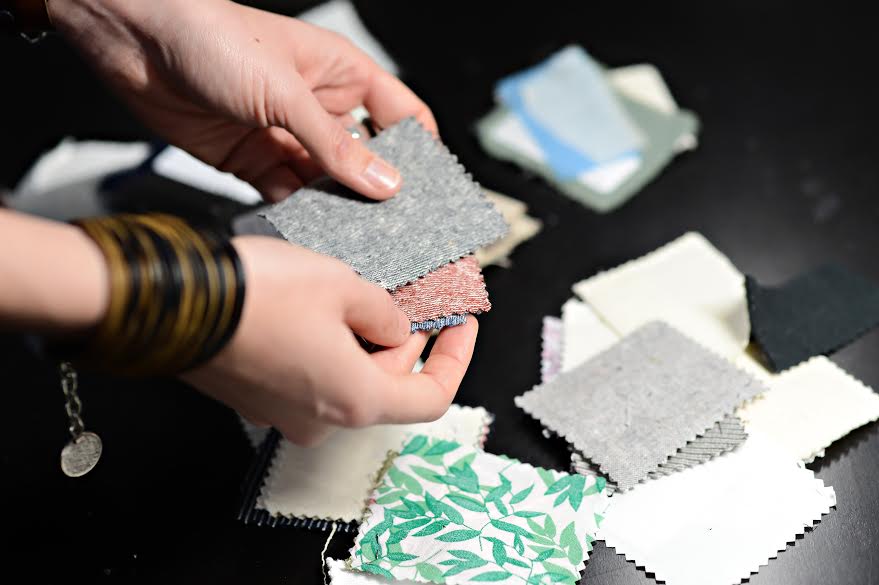Factory45 Is Taking Sustainable Fashion Startups from Idea to Launch

Shannon Whitehead. / Photo Provided
Shannon Whitehead knows starting an apparel company isn’t easy. She launched her own in 2010, called {r}evolution apparel. In her words: “Fashion was one of the hardest industries I’ve ever had to break into.”
But entrepreneurs today don’t need to share the same experience.
Whitehead is now the founder of Factory45, a Boston-born online accelerator program designed to bring sustainable fashion brands from the idea stage to launch in just six months.
“I couldn’t understand why it was so hard for new designers to start out,” Whitehead says. “I didn’t want people to think, ‘I have to go to China to get something made.’”
Whitehead serendipitously stumbled into fashion. When she started her senior year of college, her plan was to take the Law School Admission Test and work her way “to that corner office in downtown Manhattan.” By the end, she had bought a one-way ticket to Australia instead. It was there, bartending, that she met her future business partner Kristin Glenn.
“I spent two years discovering a completely different part of the world and finding myself,” Whitehead explains, sharing stories of additional time spent in South Africa and Central America. “Then Kristin sends me a Facebook message and says, ‘I know you’re not going to get a real job.’”
The duo initially had plans to import fair trade items into the United States from Central America. They flew down to Guatemala, visited a cotton farm in Nicaragua, and started to discover what starting a sustainable clothing line meant.
“We thought, ‘Why would we go down to another country, when there are people who need jobs in our country?’” Whitehead says.
Their traveling experience still paid off. They used {r}evolution apparel to launch in 2011 “The Versalette,” one piece of clothing that could be worn more than 15 different ways—perfect for travel and manufactured in the U.S. out of 100-percent recycled fabric. Whitehead and Glenn raised $64,246 on Kickstarter, becoming the highest-funded fashion project on the crowdfunding platform at that time.
“As soon as we had money, of course all of these doors opened,” Whitehead says. But the success didn’t come without its struggles. She adds:
One of the biggest things I preach is building an audience before you need to make the ask. For that year and a half we were struggling, we blogged about it three times a week—our first fight, our first sample that was completely botched. By the time we launched our Kickstarter, we had 800 people who were invested in our idea.
It’s tips like this Whitehead brings to Factory45. Every startup that’s completed the program and then launched a Kickstarter has been successfully funded.

Photo Provided
Following Whitehead and Glenn’s first crowdfunding campaign, the two ran themselves ragged holding a three-month sustainable fashion tour of the West Coast, hosting pop-up shops and educating customers on “fast fashion” from Vancouver, Canada, to San Francisco, California. The two returned burnt out and, rather than risk their friendship, opted to shut down {r}evolution apparel.
Whitehead started consulting in the interim, but her passion was with helping startups, which couldn’t typically afford the consulting fees. Now, for approximately $3,000—which can be paid in six $500 installments—startups can apply for Factory45. If accepted, they work through five modules: Sourcing, Brand Identity, Pre-Production, E-Commerce Marketing, and Preparing for Launch. Within each module are professionally recorded keynotes, video lessons, and exercises, such as building a one-page business plan.
Startups enrolled in Factory45 also receive personal email support, mentorship, access to Whitehead’s supplier database, group phone calls, and alumni case studies.
“This is about building your company brick by brick,” Whitehead says. “And I’m as involved in their business as they want me to be. I talk to some people every single day, some people I never talk to.”
When asked why she launched an online accelerator as opposed to creating a physical co-working space, Whitehead notes she didn’t want the program to feel limiting. “I had someone in Kentucky and San Diego,” Whitehead says. “They would have never been able to do a program like this if it wasn’t online.”
Whitehead has worked with 76 startups since launching in June 2014, including MamaChic, a versatile and sustainably made scarf designed for new mothers, and children’s clothing brands Cuckoo Children’s Co. and Citizen Smalls. Her third cohort started last week, and she’ll be opening applications again in May 2016.
“A lot of my next steps are getting more connected to the manufacturing industry in the U.S.,” Whitehead says. “They’re constantly getting inquiries from people who don’t know what they’re doing—they don’t understand how much goes into manufacturing a fashion company.”
Whitehead’s goal is to have manufacturers refer those entrepreneurs to Factory45, so she can prepare them for production.
“My big, big dream,” Whitehead says, “is to become the golden standard for apparel manufacturing in the U.S.”

